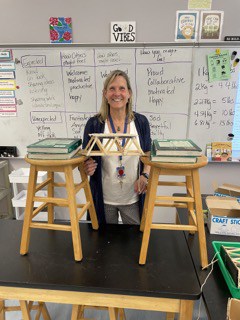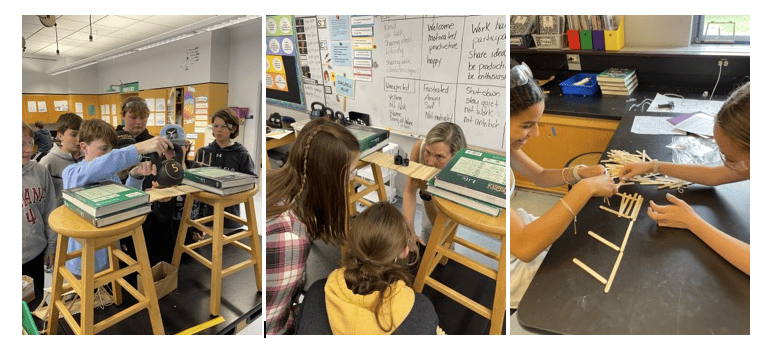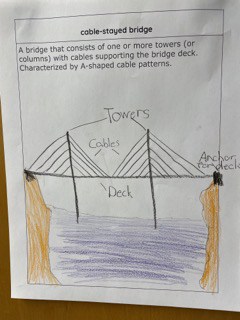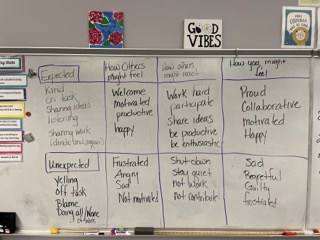
As TEC’s Innovative Learning Coordinator, one of my favorite parts of the job is visiting TEC district schools to see and hear about the great work happening every day. This month, I had the pleasure of visiting Fuse MA alumni and Middle School Science Teacher, Juli Dalzell, which offered a refreshing and inspiring reminder of how teachers are constantly and thoughtfully innovating and iterating!
Juli’s seventh grade class was engaged in showing “how the components of a structural system work together to serve a structural function and providing examples of physical structures and relating their design to their intended use.”
Students were challenged to build a popsicle stick bridge that met the following criteria:
- Spans 30 cm
- Supports 2kg (about 4 pounds) for more than 30 seconds
- Uses no more than 80 popsicle sticks
- Cannot be coated with glue 🙂
- Looks aesthetically pleasing
As this was the second day of building, students worked busily together in pairs and small groups and, when ready, eagerly tested their designs and tracked their progress.


While observing this particular class allowed me to see impressive and innovative practice in action (such as a learning task that allows for predictive struggle, students processing and sharing their thinking through a structured learning activity, and checking for student progress toward learning goals), I was equally impressed with what is often an invisible, yet vital, teacher super-power – all the thought, planning, relationship-building and pre-work that allows an activity like this to be truly meaningful and successful.
As I chatted with Juli, I learned how many things she had intentionally put in place previous to this project from content to social mapping. For example, students had already learned about types of bridges, parts of bridges, and forces that impact a structure so they could make informed decisions when it came to building their own bridge.

Grouping students for this activity was done with great care and input from students ahead of time. On the board, students were reminded of expected and unexpected behaviors and cues for building empathy and self awareness around how students might feel and react as they worked together.
This year, Mrs. Dalzell also began asking students to end each class with a quick reflection. Students rate themselves on how they collaborated and their level of engagement. They set a goal for their next class period and have an opportunity to let Mrs. Dalzell know if there is anything they need or would like to share, adding helpful context and a social emotional lens to allow Mrs. Dalzell to develop even stronger relationships with her students.
Classroom visits offer a quick glimpse into the incredible work a teacher does to address the many elements that contribute to a joyful, productive, and innovative learning environment. There are so many more projects, strategies, routines and ideas that Medfield teachers like Juli invent, implement and iterate on throughout the year – I’m incredibly grateful to have had the opportunity to learn about and share a few from Mrs. Dalzell!
For more information or to share innovative learning examples from your school, please email profdev@tec-coop.org

